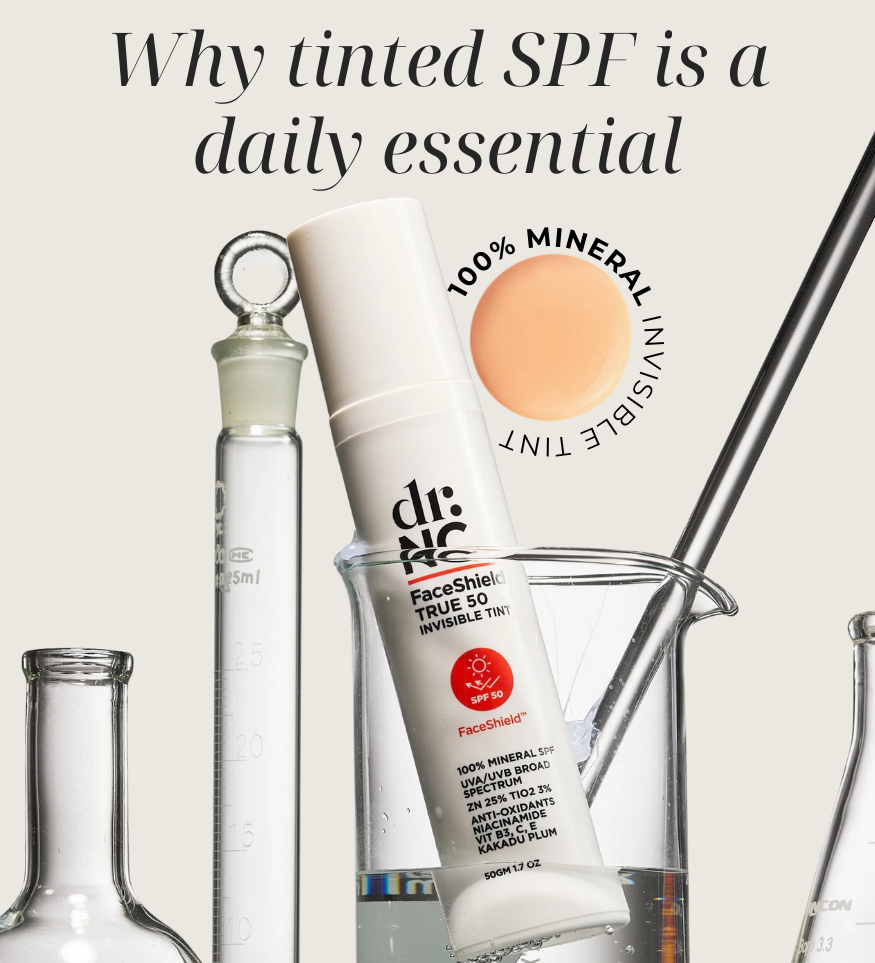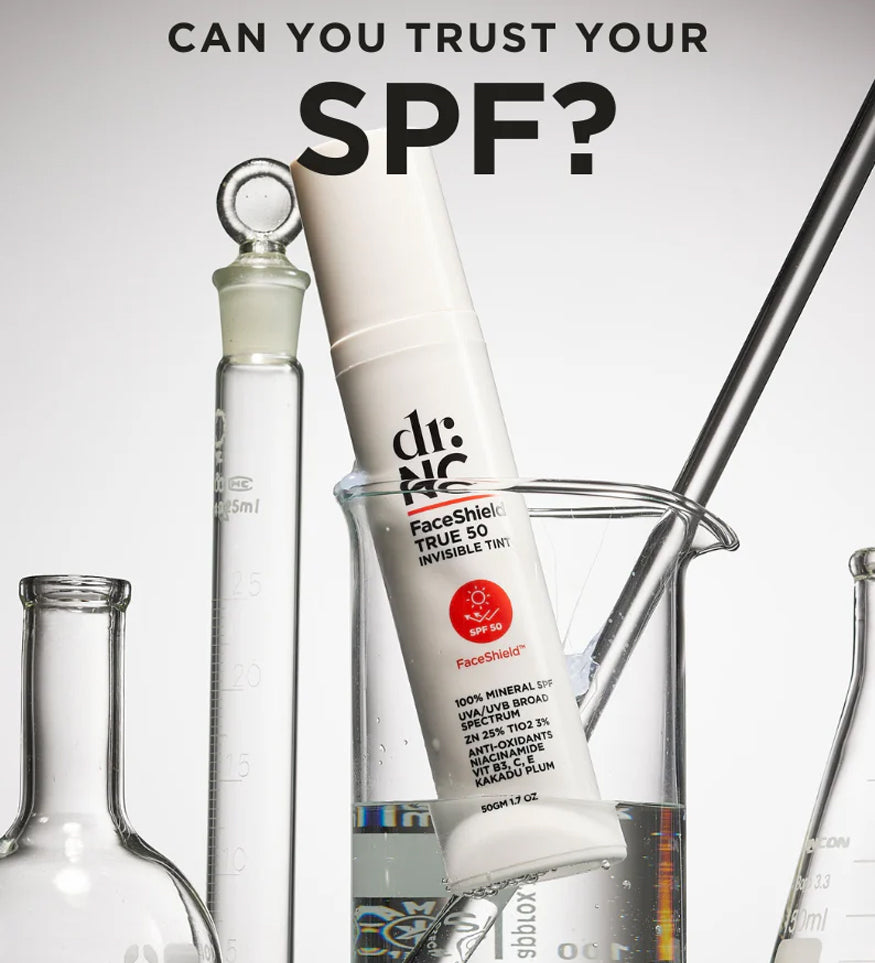The Skin Blog — Australian Dermatologist Dr Natasha Cook
The Silent Skin Damager...Blue Light
Why Tinted SPF is a daily essential! You can’t see it, you can’t feel it …but this is how blue light silently affects your skin. We all know the damaging impact of UVA UVB on our skin when it comes to skin ageing and increasing our risk of skin cancer. But did you know visible light (one wavelength of the visible light spectrum) is equally as damaging, just slowly and silently. According to a study by Unilever, 30 hours of exposure to blue light from smartphones or laptops can increase the inflammation level in skin cells by 40%! Given the...
Is your SPF giving you skin cancer?
One of the BIGGEST mistakes you can make with SPF, are spray-on sunscreens enough when it comes to protection?1. Why is spray-on SPF not effective in protecting against UV damage? When it comes to UVA/UVB protection with SPF and sunscreen, APPLICATION IS EVERYTHING! It’s what we refer to as an exponential dose delivery curve. So if you under apply by half you are getting less than a quarter of the SPF labelled on the product, and we know for a fact that 80% of consumers under apply by half! Throw in a spray-on application that is aerosolised and you have a disaster for your...
Can you TRUST your SPF: Is Your Sunscreen Really Protecting You?
The Hard Truth When It Comes To SPF! I recently came across alarming news about "fake" SPFs being withdrawn in Spain, exposing the widespread issue of misleading sunscreen labels. This was not the first time I have been informed of misleading labelling in the sunscreen manufacturing industry. Unfortunately, this isn’t an isolated problem - it’s a global phenomenon, and Australia is no exception. In the USA, labs have been investigated by the FBI for falsifying SPF tests, certifying products as SPF 50 when, in reality, they were often no higher than SPF 10. This puts users at significant risk, dramatically increasing...
What Is Osmosis And Why Does It Make My Skin Dry In Winter?
Whilst we may love the fresh mornings and cosy evenings that the cooler months bring, amidst the seasonal charm is a less welcome companion: dry, parched skin. If you’re wondering why your skin often feels tighter and more dehydrated in winter despite your best moisturising efforts, the answer lies in a process called osmosis. The Science Behind Skin Hydration Skin osmosis is a natural process and balancing act, through which water molecules move across the skin barrier, which acts as a semipermeable membrane, to balance water levels on both sides. This movement typically occurs from an area of higher water...





























